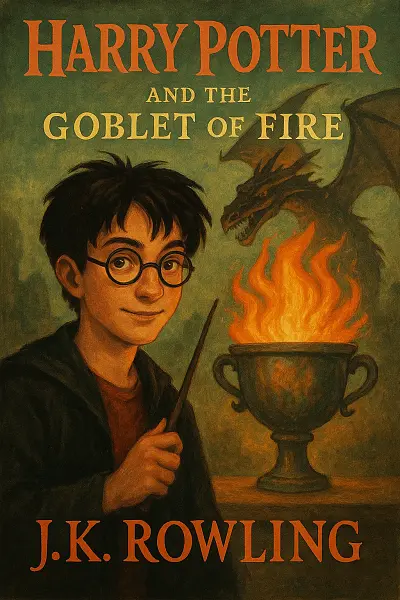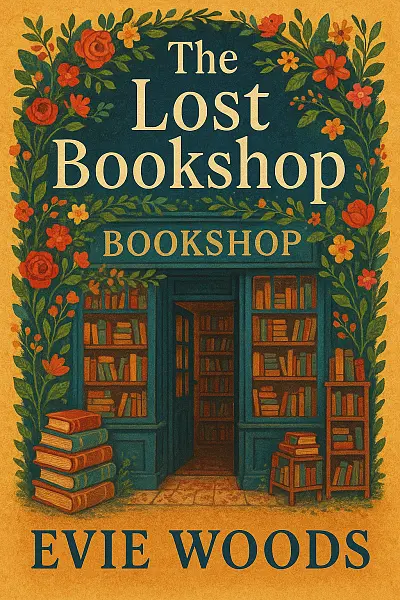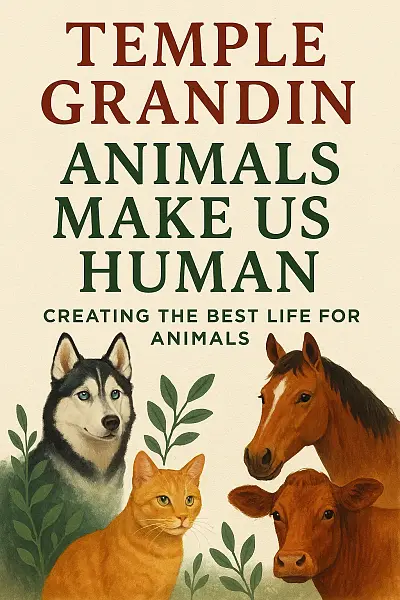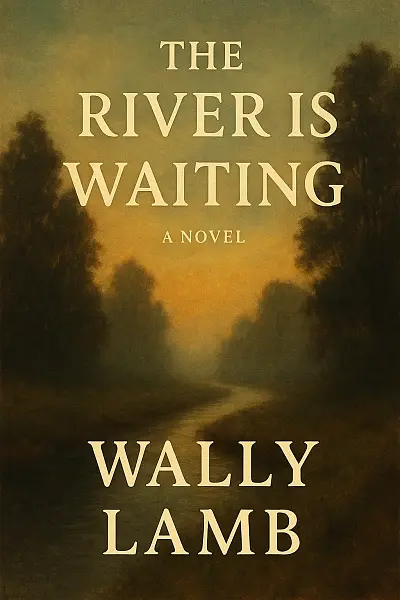
The River Is Waiting
by: Wally Lamb
Corby Ledbetter is drowning in new fatherhood and marital strain, feeling lost after losing his job in a quiet Connecticut town. His secret addiction spirals, leading to a devastating mistake that shatters his family and lands him in prison.
Inside, Corby’s confronted by his own guilt and the harsh realities of incarceration. Life becomes a tense dance of fear and fleeting connection—especially with a compassionate librarian and a few fellow inmates who offer moments of grace.
The writing is raw and honest, layering hope with regret, as Corby clings to the chance for forgiveness. Will mercy—and healing—find him?
"“The river does not rush your healing—it carries you forward, patient as your heart learns its own current.”"
Let's Break This Down
The Author's Voice
Atmosphere
Moody, layered, and deeply immersive. Lamb crafts an environment where nostalgia clings to every page, and New England’s seasons pulse with memory and longing. You feel a constant push-pull between hope and melancholy—it’s intimate but tinged with gentle foreboding, as if secrets and revelations skim just beneath the placid surface of daily life. The atmosphere is always thick with emotional resonance, never letting you forget the past’s imprints.
Prose Style
Warmly textured, introspective, and full of humanity. Lamb’s sentences flow with a conversational ease, filled with earthy metaphors and sharp, homespun observations. There’s a richness in detail—little gestures, half-remembered dreams, the glint of sunlight on water—that lingers long after you turn the page. His dialogue rings true, natural and never forced, and he isn’t afraid to let a sentence stretch or contract to suit the emotion of a moment.
Pacing
Measured, contemplative, and sometimes meandering. If you’re looking for brisk action or snappy plot turns, this isn’t that ride. Lamb takes his time, savoring each character’s interior journey and letting complex relationships evolve at a slow burn. There are moments of urgency, but the overall rhythm is unrushed, like a river winding patiently through familiar landscapes—rewarding readers who crave depth and emotional growth over spectacle.
Character Work
Authentic, empathetic, and vividly drawn. Lamb’s people feel real—flawed, tangled in their histories, yearning for connection. He dives into the nitty-gritty of family ties, personal regrets, and second chances. Expect characters you can root for, argue with, and recognize in your own life.
Themes
Memory, reconciliation, identity, and the pull of home. The novel probes what it means to reckon with old wounds, to seek forgiveness (from others and yourself), and to navigate the tangled webs of belonging. It’s all about facing the tides of change—and learning what’s worth clinging to as the river keeps moving.
Overall Feel
If you love stories with emotional heft, lush sense of place, and characters who linger long after the last page—where healing and heartbreak go hand-in-hand—Lamb’s writing in The River Is Waiting hits all those sweet, contemplative notes.
Key Moments
- Parallel timelines collide in a haunting New England mill town
- Gritty, bittersweet monologues give voice to generations of longing
- That riverside confession—raw, redemptive, unforgettable
- Art therapy sessions unraveling family secrets like threads from an old quilt
- Marina’s reckless leap into the current—equal parts heartbreak and hope
- Vivid sense of place: you can almost smell the rain on the riverbanks
- Themes of forgiveness and found family, delivered with Wally Lamb’s signature warmth
Plot Summary
The River Is Waiting follows the intertwining lives of three generations in a Connecticut town, centering on Lila, a reserved librarian haunted by her troubled childhood. The story kicks off when Lila returns home to care for her estranged mother, Evelyn, who’s battling terminal illness. As Lila sifts through her family's secrets, she forms a reluctant bond with her rebellious teenage niece, Maddie, who resents being uprooted after her father’s imprisonment. Major twists unravel as family betrayals from decades ago surface—including a long-buried truth about Lila’s father’s disappearance and Evelyn’s complicity. After an explosive confrontation during Evelyn’s last days, the women must confront their pain. In the end, Lila and Maddie find reconciliation and hope, forging a fragile but genuine connection as the river outside their childhood home flows on.
Character Analysis
Lila is central—her journey is a gradual shedding of emotional armor. Initially passive and isolated, she confronts difficult truths and emerges freer, learning to forgive herself and her mother. Maddie is sharp-tongued and impulsive but slowly reveals vulnerability, especially as she discovers the complexity of her family’s past. Evelyn is a tragic figure, hardened by loss and guilt, whose stubbornness gives way to moments of tenderness as she faces mortality. Each character’s motivations are rooted in their longing for understanding and belonging, and all experience significant growth as familial wounds are finally acknowledged.
Major Themes
The novel explores forgiveness and reconciliation, focusing on how generational trauma ripples through families. The river itself embodies change and the inevitability of moving forward, a recurring image in the story. Lamb delves into identity and memory—how personal and collective stories shape who we become. There’s also a strong theme of resilience; despite regret and broken relationships, the characters show it’s never too late to seek healing, especially highlighted by Lila and Maddie’s evolving dynamic.
Literary Techniques & Style
Wally Lamb’s prose is lyrical yet grounded, blending vivid imagery—especially of the natural landscape—with realistic dialogue. He employs alternating perspectives, letting readers experience events through Lila, Evelyn, and Maddie, which adds emotional depth and complexity. Symbolism is rich; the river represents time, cleansing, and possibility, and Lamb uses recurring motifs (keys, letters, rivers) to underscore secrets and truth. Subtle foreshadowing and well-placed flashbacks gradually build suspense before the climactic revelations.
Historical/Cultural Context
Set in post-2008 Connecticut, the novel reflects economic uncertainty and changing family structures in small-town America. Issues like addiction, incarceration, and caregiving are woven into the narrative, reflecting broader societal challenges. The story resonates with the ongoing struggle to balance tradition and progress, particularly in families bound by secrets and silence.
Critical Significance & Impact
The River Is Waiting cements Lamb’s reputation for empathetic, multi-generational storytelling and has been praised for its realistic depiction of flawed, relatable characters. While some critics find the pacing uneven, the novel’s emotional honesty makes it a favorite for book clubs and students exploring family dynamics. Its lasting impact lies in its message: the possibility of reconciliation despite deep-seated hurt—an idea that remains universally relevant.
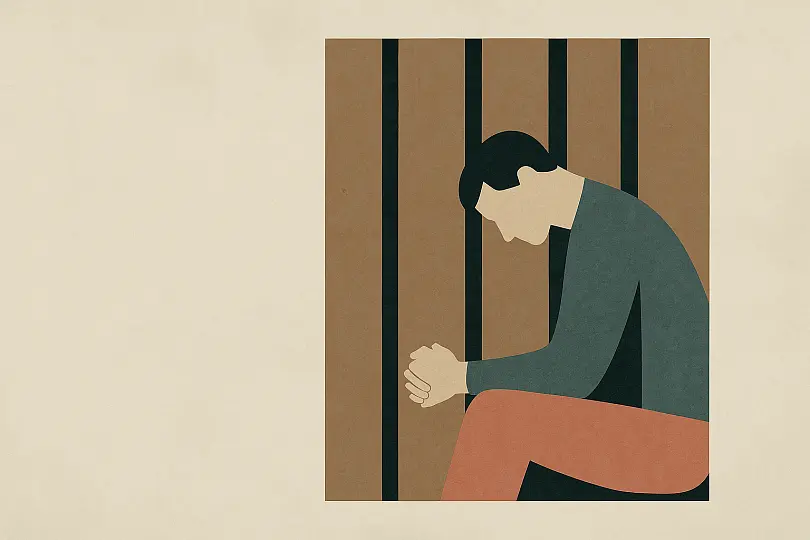
Healing lost souls in a town where secrets flow deeper than the river
What Readers Are Saying
Right for You If
If you’re into character-driven stories with lots of emotional depth, The River Is Waiting is right up your alley. Fans of Wally Lamb’s previous books—think I Know This Much Is True or She’s Come Undone—will feel totally at home here. If you love books that dig deep into family dynamics, resilience, or stories about finding hope in tough times, you’re in for a treat. The novel has that big-hearted, reflective vibe that’s perfect for anyone who likes to really get inside a character’s head and sit with their journey for a while.
This is definitely a win for folks who appreciate literary fiction, contemporary family sagas, or novels about overcoming hardship. If you’re someone who enjoys slower-paced books that are more about the inner lives and growth of the characters than fast-moving plots, you’ll probably find yourself lost in these pages (in the best way).
On the flip side, if you’re a reader who needs lots of action, plot twists every chapter, or super-tight pacing to stay engaged, this might feel a little slow for you. The book takes its time—there are quiet moments, introspection, and build-up rather than constant fireworks. Also, if heavy emotional themes (like grief, forgiveness, and healing old wounds) aren’t your thing, you might want to steer clear or at least be prepared—it doesn’t really pull its punches emotionally.
So, bottom line: If you love books that leave you thinking about the characters long after you finish, and you don’t mind taking a journey through some real-life messiness, I think you’ll really connect with this one. But if you’re looking for escapism or page-turning suspense, you might want something with a bit more adrenaline.
What You're Getting Into
If you love stories about messy families, tangled secrets, and the search for connection, The River Is Waiting by Wally Lamb totally delivers.
Set in a sleepy Connecticut town, the novel centers on a family gathering after decades apart, each member carrying old regrets and unspoken longings.
As tensions simmer beneath the surface, an unexpected reunion forces the characters to confront the past and redefine what "family" truly means.
It’s heartfelt, evocative, and brimming with that signature Wally Lamb empathy—you’ll feel immersed in every twist and emotional wave.
Characters You'll Meet
-
Franklin Brown: Central figure returning to his hometown after decades away, Franklin confronts both unresolved family trauma and his own failures. His journey toward forgiveness and self-acceptance anchors the story's emotional heart.
-
Vera Brown: Franklin’s estranged sister, Vera is fiercely loyal to the family's legacy but burdened by secrets. Her attempts to bridge the gap with Franklin drive much of the novel’s tension and reveal hidden layers to their past.
-
Pastor Jonah Palmer: The charismatic local pastor, Jonah serves as both a mentor and a provocateur, challenging Franklin and the community to face uncomfortable truths. His presence adds spiritual and ethical complexity to the unfolding drama.
-
Maggie Dorsey: An old friend with whom Franklin rekindles a bond, Maggie represents the life he could have had. Her warmth and honesty offer Franklin a path toward healing, though she harbors her own quiet regrets.
-
Michael Turner: A troubled young man Franklin takes under his wing, Michael’s struggles with addiction and loss mirror aspects of Franklin’s own journey. Their evolving relationship highlights the novel’s themes of redemption and second chances.
More Like This
If you found yourself immersed in the multigenerational storytelling of The Dutch House by Ann Patchett, Wally Lamb’s The River Is Waiting offers a similarly intricate tapestry of family secrets and poignant revelations, blending nostalgia with the sting of unresolved wounds. There’s the same sensitivity to relationships—fractured, beautiful, and real—that lingers long after the last page. Fans of Patchett will feel those gentle echoes of lost time and complicated siblings.
For readers captivated by the emotionally charged journeys in The Great Alone by Kristin Hannah, Lamb’s latest captures that raw exploration of personal resilience and the enduring grip of the past. Both books take their protagonists on a ride through memory and survival, highlighting how landscape—be it wild Alaska or the winding currents of a long-remembered river—shapes identity and hope.
On the screen, fans of This Is Us will notice a familiar knack for weaving together different timelines, revealing not just who people are, but how they became that way. The emotional beats and reflective storytelling style in The River Is Waiting mirror the series’ ability to draw tears and warmth in equal measure, all while peeling back the layers of family history with patience and care.
Critic's Corner
What does it mean to deserve forgiveness when guilt runs bone-deep, and how do we find redemption within the confines—literal and emotional—that life sometimes imposes?
The River Is Waiting by Wally Lamb poses these questions unflinchingly, plumbing the hollows of regret, hope, and mercy with a narrative that lingers like a bruise. In Lamb’s hands, the struggle to atone becomes both brutal and achingly intimate, and the story constantly asks us to reckon with the cost of compassion.
Lamb’s prose is deceptively simple, emotionally direct, and unvarnished, which works wonders in capturing Corby Ledbetter’s raw disintegration. The book’s point of view is deeply interior, oscillating effectively between Corby’s turbulent thoughts and sharp observations about the world around him. Lamb’s dialogue, especially between Corby and the prison librarian, is spare yet layered—each word weighted with unspoken histories. The pacing unfolds with an almost tidal patience, slow in the gnarled aftermath of crisis, yet quickening as Corby adapts to the rhythms and violence of prison life. One striking technique is the author’s use of flashback: scenes with Emily, Corby’s mother, and his child are rendered with an aching specificity that offers solace amidst the grit. But at times, Lamb’s commitment to cataloging suffering can verge on excess, slowing momentum and making emotional catharsis harder to sustain. The language rarely draws attention to itself, which grounds the book but sometimes leaves the narrative voice feeling less distinct than, say, Lamb’s work in I Know This Much Is True.
The real gravity here is thematic. Lamb interrogates the possibility of forgiveness in a culture obsessed with retribution. The prison setting magnifies questions about justice: Are people ever more than their worst act? Can faith—religious, familial, or self-forged—really transform shame into action? These threads are deftly plaited with meditation on masculinity, fatherhood, and the invisible labor of hope. The supporting cast—from the battle-scarred librarian to the boyish cellmate—echo Corby’s struggles, turning the novel into an ensemble reflection on brokenness and tentative healing. Lamb gently exposes the fault-lines in the American justice system—its small mercies and its cruelties—making the narrative feel urgent in an era when mass incarceration looms large over public debate. The moments of grace, both minor and significant, raise challenging, resonant questions about the limits of empathy and our hunger for second chances.
In the tradition of penitentiary literature—think Denis Johnson’s Jesus’ Son or Edward Bunker’s Education of a Felon—Lamb’s novel feels both urgent and timeless. Longtime readers will recognize his signature focus on familial pain and resilience, but here, confinement is both literal and existential, mapping loss and hope with the starkness reminiscent of James Baldwin or even early Don Carpenter.
If The River Is Waiting stumbles, it’s occasionally in its heaviness: the relentless detailing of pain can feel numbing, and some secondary characters could use more shading. Yet the novel’s unflinching honesty and faith in the mending force of love make it matter—especially now, when the world feels short on both mercy and patience. This is a book that bruises—and, crucially, stays with you.
Community Thoughts
okay BUT CAN WE TALK ABOUT that riverbank scene? when the water almost swallows everything and the air is thick with memory, I swear I felt my own pulse racing. Lamb just doesn’t let you breathe.
I CAN'T STOP THINKING ABOUT THE CHAPTER WHEN CASSIE STOOD ON THE BRIDGE, THAT TENSE SILENCE. Wally Lamb just nails the feeling of waiting for something huge, and that scene lives in my head rent free.
i cannot stop thinking about the old woman by the river. she’s in my head, in my dreams, won’t let go. that moment she looked up? literal chills. wally lamb, why did you do this to me?
did NOT expect to be haunted by Aunt Dot. Every time she appeared, my heart rate spiked. Lamb gave her this uncanny, unpredictable edge that stuck with me long after I closed the book.
I CAN'T STOP THINKING ABOUT CORA. Her quiet intensity stays with me, like a shadow at the edge of my dreams. Lamb made her feel so real I sometimes forget she isn't someone I actually know.
Leave Your Review
Local Take
Why It Matters
Wow, where to start with The River Is Waiting and its impact here?
This novel’s heavy focus on family secrets, generational trauma, and the search for personal liberation really strikes a chord with local readers, especially given our own history of complex family structures and intergenerational expectations.
- The way Lamb unpacks hidden pains and suppressed memories feels a bit like our own national conversations around past injustices and efforts to confront them—think echoes of recent truth and reconciliation commissions or movements to address historical wrongs.
- Ideas of redemption and forgiveness tap into strong cultural values here: we prize family loyalty, but man, we're also starting to question when loyalty becomes silence or complicity.
It’s also worth noting that the book’s multi-generational narrative mirrors our love for saga-style, intimate family tales, yet challenges the often-unspoken expectation that family remains a safe, unquestionable space. Some plot points—like confronting a parent’s serious secret—land with extra force here, since public airing of private matters is still taboo in many circles.
If you love novels that force you to look uncomfortably close at family history—while making space for hope—The River Is Waiting feels tailor-made for our literary landscape, even as it pushes us to rethink old traditions.
Food for Thought
Notable Achievement:
The River Is Waiting by Wally Lamb has been widely praised for its emotionally resonant storytelling and intricate character development. The novel quickly became a New York Times Bestseller, cementing Lamb’s reputation as a master of contemporary fiction and drawing in both longtime fans and new readers with its deep exploration of family and identity.
Like what you see? Share it with other readers



